Last summer we noticed a lot of action going on in a field adjacent to our property. In particular, there was a large truck container parked back toward the woods, and since the rumor was that there was going to be an active farm on this field, our first thought was OH NO….someone is putting in a container farm!
Although container farms are being played up as a great way to grow local produce, they are more relevant for farming in more urban areas, and we really weren’t too keen on looking out our windows at a huge parking lot full of truck containers. Then we got a nice little flyer in the mail from our new neighbor-farmers Joey Hersh, Hannah Romig and Peter Herceg, explaining what Rattle Root Farm is and will be.
Now, although our view may not be quite as pristine as it was before, it’s a whole different vibe since we know it’s a farm, and an organic no-till farm, to boot.
We purchased a share of the produce that will be coming this year, have gotten to know the farmers, and we are even pitching in by cleaning up our adjacent field along Mirick Road, which was so overgrown with vines that their potential customers might not be able to see if any cars were coming when they pulled out.
It is Mirick Road, so it’s unlikely there’ll be heavy traffic, but they did sell out their CSA farm shares. A side note is that an added advantage of purchasing the produce shares is that you can stop in anytime just to pick flowers and herbs from a designated area of the farm.
“After finishing school, Peter spent over 3 years in Shanghai, teaching English. Like Hannah and Joey, Peter enjoys cooking and traveling to try new things. In that vein, he hopes to help introduce crops and dishes from his travels to the community. He finds interest in a myriad of fields and hobbies such as foraging, mushroom cultivation, terraced gardening, soap-making, hunting, building structures and is unafraid to immerse himself in new projects. After his stint teaching, he volunteered on organic farms in Japan and across the US, experiences for which he is tremendously grateful. Enamored with the communal and gentle pace of life, and embracing physical work on the land, he is thrilled at the prospect of emulating these farms closer to home.” –Rattle Root Farm website
Joey and Hannah apprenticed at the Frith Farm in Scarborough, Maine, and talked about how an apprenticeship is so much more than just being a farmhand. Farm Manager Daniel Mays wrote a book called The No-Till Organic Vegetable Farm, which he says is a distillation of lessons learned during the last ten years starting Frith Farm. Click here to find out more or order a copy.
Hannah and Joey talked about how much they appreciated that Daniel Mays was open with sharing his knowledge, and would dedicate a half day every week to a different topic to educate the apprentices. Some days they would learn about irrigation, other days taxes.
Once they decided to start a farm along the lines of the Firth Farm, they began searching all over Massachusetts for a suitable location. So how did they end up creating Rattle Root Farm right here in Princeton?
From their website, “Joey, who grew up here in Princeton, came upon this field both by a stroke of good luck and through the kind support of our neighbors and the Princeton Land Trust.”
We’re glad they were lucky, and it’s nice to see that land being farmed again.

We met with Peter, Joey and Hannah on a rainy day this week, when they were all working inside one of the hoop houses. As we chatted, they kept at their work…..there’s always something to do on a farm. We’ve gotten to know ‘the farmers’, as we collectively call Joey, Hannah, and Peter, and they are great neighbors.

Joey, Hannah and Peter all connected a few years ago while Joey and Hannah were living and working at Red Shirt Farm in the Berkshires.
“We share a collective curiosity and eagerness about agriculture, a zeal for cooking elaborate feasts, and an interest in having a beneficial impact on our local and collective food systems.” –Rattle Root Farm website
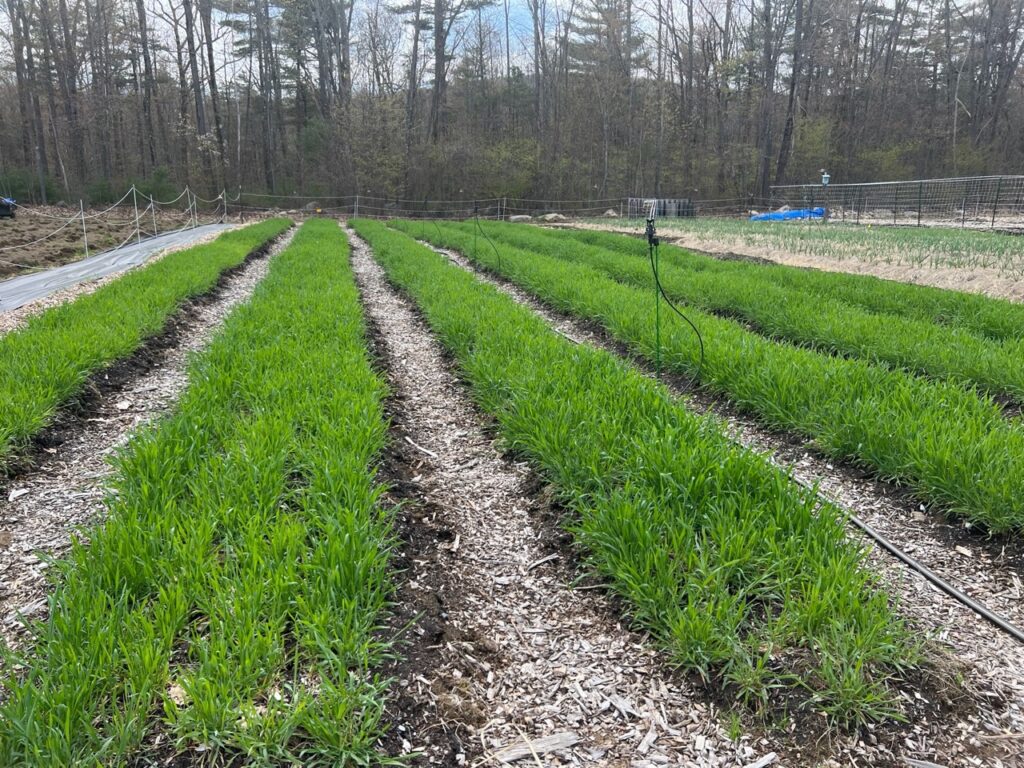
Besides rocks and the climate, another drawback to farming in New England is all animals that live in the woods. We found this out personally last year, as a porcupine ate not just all our pears, but also chewed the limbs right off the tree, so it could leisurely eat the pears while comfortably sitting on the ground.
Rattle Root Farm has the same challenges–keeping deer, porcupines, and other wild animals from eating the tempting vegetables now growing. For this they have put up an electric fence around the perimeter.
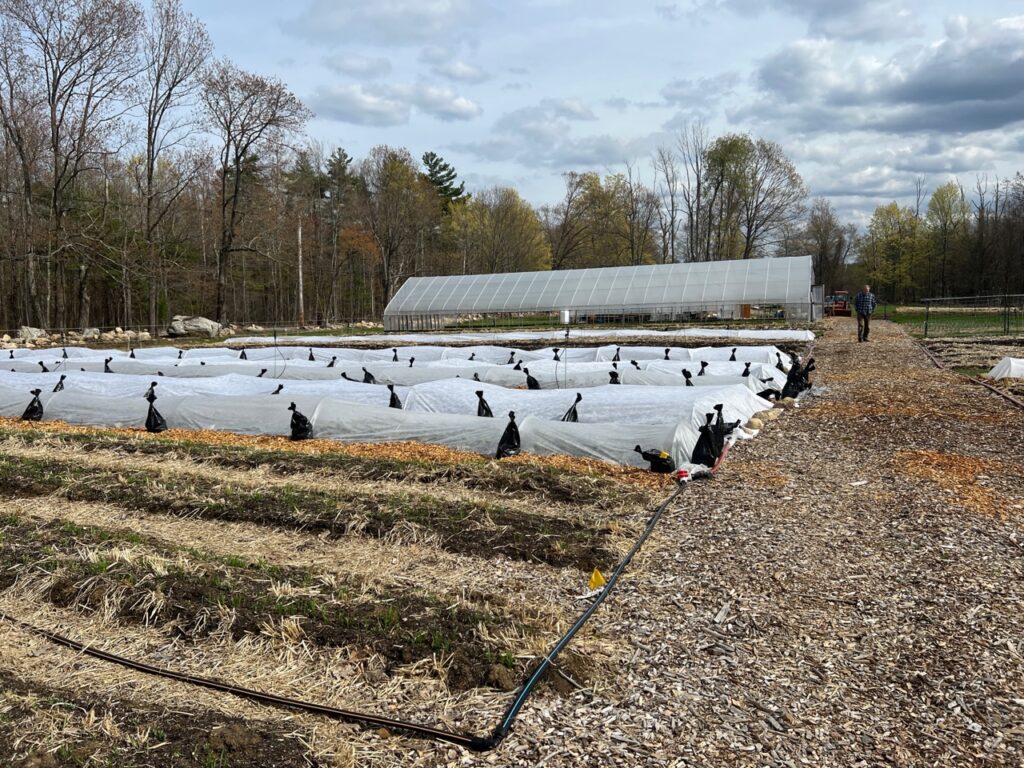
It appears that this venture is going well. Joey, Hannah, and Peter are very happy and pleasantly surprised with the local support they are receiving. Because they didn’t want to over-promise and under-deliver, they set the number of shares to be sold in their first season at just 85.
They’ve sold out of the 85 shares and have a long waiting list. They are confident that they will be able to meet the supply demands of the 85 shares, as well as sell surplus produce while set up at the Mountainside Café on Mountain Road in Princeton, starting at some point in June.
They talked about the potential for working collaboratively with a local restaurant to offer local salads.
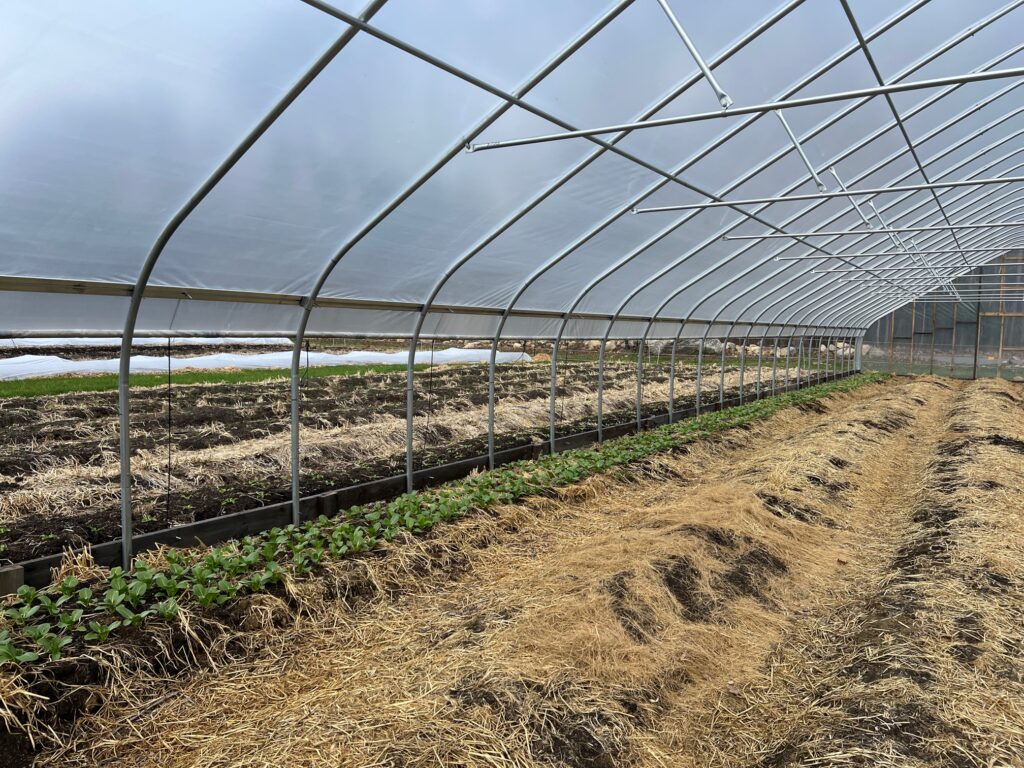
They also have worked with private organizations and governmental agencies to get the farm up and running. The Natural Resource Conservation Service (NRCS), a branch of the USDA, was particularly helpful.
Through the NRCS, they discovered resources for education and grant funding which has helped tremendously with the installation of a well and irrigation system.
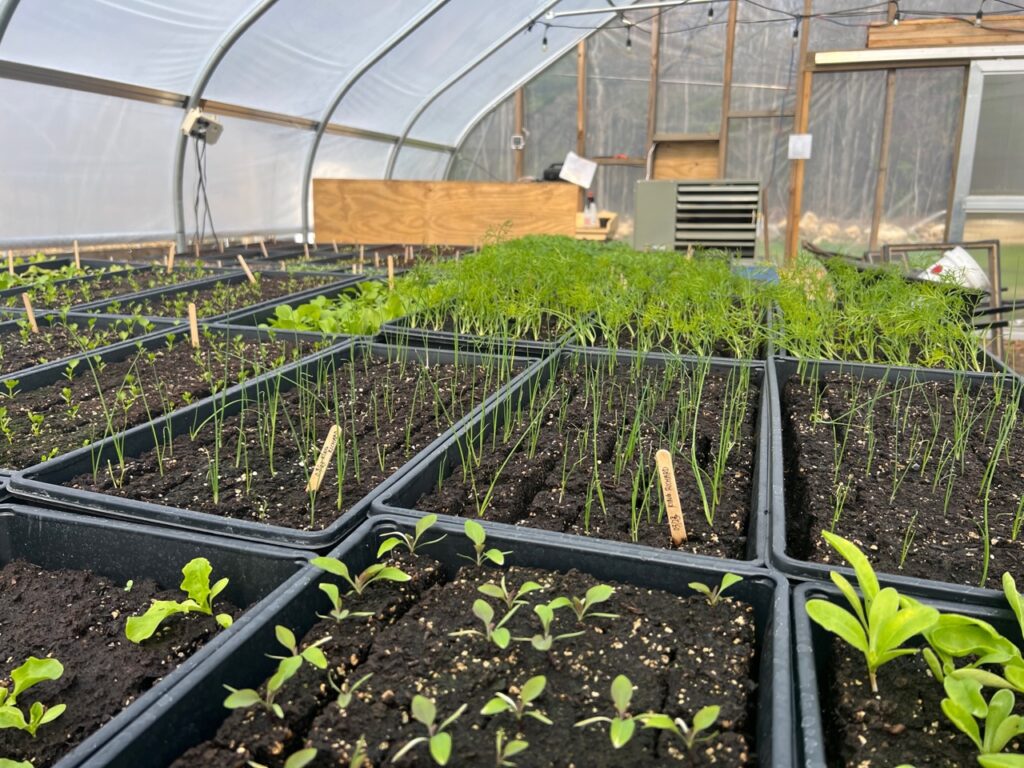
Recently, the Xerces Society, who the Rattle Root Farmers connected with through NRCS, visited to assess the site and help design a habitat with hedgerows and perennial plantings, to encourage natural predators, like beetles and spiders to exist on the farm.
“The Xerces Society for Invertebrate Conservation is a non-profit environmental organization that focuses on the conservation of invertebrates considered to be essential to biological diversity and ecosystem health. It is named in honor of an extinct California butterfly, the Xerces blue.” –Xerces.org
This sounds less glamorous than protecting tigers or elephants, but it’s really critical to the earth’s ecosystem. As an example, we have a fairly wet property at times, plus woods, so mosquitoes could be a huge problem. However, we also happen to have a lot of dragonflies, so it seems to balance out. We never spray, and rarely have mosquitoes.
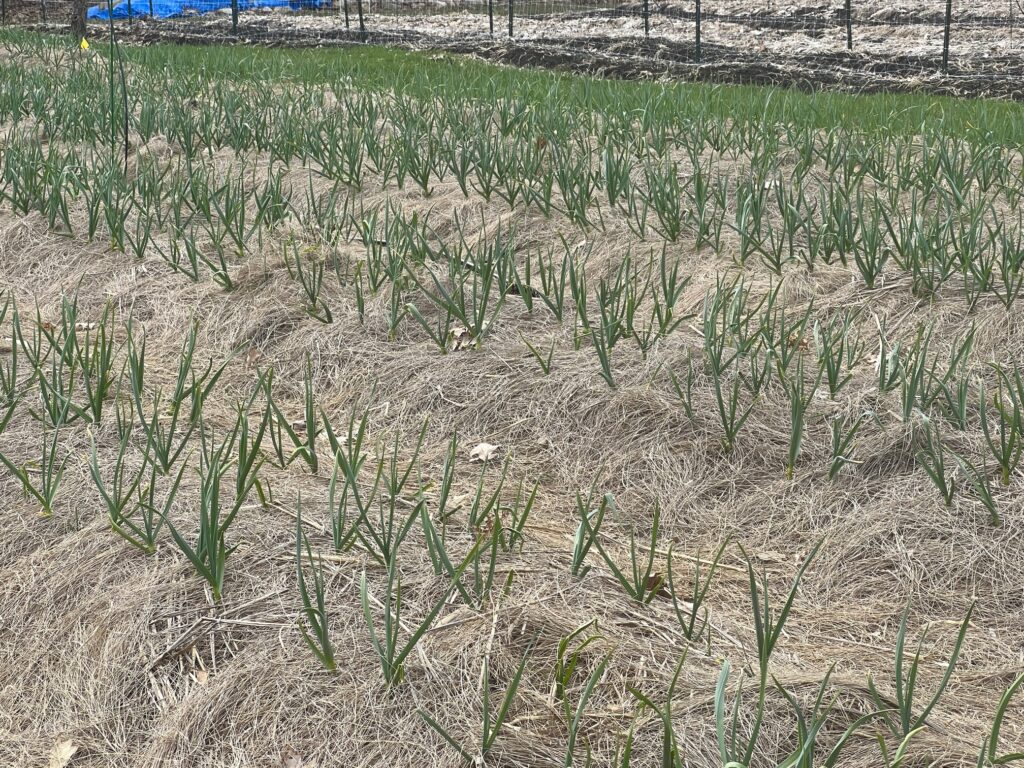
We’re excited about this farm next door. Jay and I have tried to have gardens for about fifteen years now, and it’s never worth the effort…..it seems like something always goes wrong. Last year it was chipmunks taking one bite out of each tomato. We’ll probably try it again, but it sure is nice to know we’ll be getting a share of the organic, delicious vegetables and fruits raised right next door.



